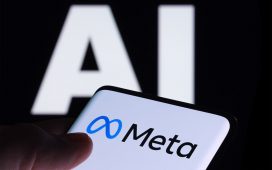Sen. Elizabeth Warren (D-MA) (C) speaks on health care as Sen. Bernie Sanders (I-VT) (2nd L) listens during an event on Capitol Hill in Washington, DC.
Alex Wong | Getty Images
Business has dominated the early policy discussions in the 2020 Democratic presidential primary.
Expect more talk about candidates’ plans for corporate America when 20 hopefuls square off over two nights in the first Democratic debates this week.
In the race’s early days, Democrats have pledged to overhaul chunks of the U.S. economy from health care to technology and agriculture. They have promised to roll back at least parts of the GOP corporate tax cuts.
Candidates have sparred over how large a role the government should take in molding the economy. They have differed over how free trade affects the economy — and whether trade deals can sufficiently protect American workers.
Business issues will give candidates a platform to set themselves apart as they elbow for position in a jammed field. Expect Sens. Elizabeth Warren, D-Mass., and Bernie Sanders, I-Vt. — who have pledged to rein in corporate America’s excesses — to make hay about business issues as they jockey for position near the top of the field. But lesser known candidates such as former Rep. John Delaney and ex-Colorado Gov. John Hickenlooper will likely try to tout their pro-business chops as they try to climb out of the polling basement.
“I would certainly expect the candidates who have most frontally questioned the role of corporations and business in America, specifically Sanders and Warren, to be most aggressive in bringing up those issues,” said William Galston, a senior fellow at the Brookings Institution. “I do think the candidates who lean left will be targeted by the more centrist or moderate competitors as being unduly anti-business.”
Here are some business issues that figure to feature heavily in the NBC News/MSNBC/Telemundo debates, which will take place in Miami on Wednesday and Thursday.
Medicare for All, or Medicare for more?
Health-care spending accounts for about one-sixth of the U.S. economy. Any overhaul of insurance markets has massive stakes not only for consumers but also insurance companies.
Disagreements have emerged in the primary over how much to change the private insurance market — or whether to get rid of it entirely.
Sanders has led the charge for “Medicare for All,” a government-run system that would provide comprehensive coverage with no deductibles or copays. It would effectively end the private insurance market — which Sanders has argued leads to “greed” and “profiteering.” Four of Sanders’ presidential primary rivals — Warren, Sens. Cory Booker of New Jersey, Kirsten Gillibrand of New York and Kamala Harris of California — co-sponsored his Medicare for All legislation earlier this year.
Momentum has gathered behind Medicare for All amid spiraling health-care costs and Republican efforts to dismantle the Affordable Care Act. While the law known as Obamacare reduced the uninsured population in the U.S., many liberals argue it did not go far enough to slash costs and improve care for Americans.
Some in the field have argued Sanders’ vision would be too expensive, or bring too drastic a change from the current system. Other candidates have laid out alternatives to expand coverage.
Sen. Amy Klobuchar, D-Minn., wants to allow Americans to opt into Medicare. Former Vice President Joe Biden wants a “Medicare-like public option” along with “premium-free access” to the public option for people who would qualify for Medicaid but live in states where where governments have not expanded access to the insurance program for low-income people.
Delaney — who has proposed a new public health-care option for people under 65 with the choice to buy private plans — has criticized Sanders over health care most frequently. Earlier this month, Medicare for All supporter Rep. Alexandria Ocasio-Cortez, D-N.Y., told Delaney to “sashay away” because he opposes the health-care plan.
In a statement earlier this week, Delaney criticized Medicare for All again.
“Making private insurance illegal is bad policy and bad politics and the truth is, the leading supporters of Medicare for All know this – that’s why they attacked me,” he said. (Delaney will not share the debate stage with Sanders, but will appear Wednesday with Medicare for All supporters such as Warren and Booker).
Breaking up the technology titans
Washington ramped up its scrutiny of large technology companies amid concerns about consumer data protection and misinformation on social media. But Warren blew the debate wide open in March when she called to break up companies such as Amazon, Facebook and Apple.
“Today’s big tech companies have too much power — too much power over our economy, our society, and our democracy,” she wrote at the time. “They’ve bulldozed competition, used our private information for profit, and tilted the playing field against everyone else. And in the process, they have hurt small businesses and stifled innovation.”
Expect some discussion about the technology industry when Democrats take the stage together in Miami.
The Democratic field has broadly called for more regulation of huge technology companies, though some have not gone as far as Warren in calling for their breakup. For instance, while Booker did not call to separate tech companies outright during a recent CNBC interview, he suggested he would consider it as president.
“I’m willing to say that we need to look at tech companies in general, because we have a problem in this country with corporate concentrations of power that are undermining basic free-market, democratic ideals,” the senator said. “So if I am the leader of this country, which I hope I am, I’m going to be coming after hard these large monopolistic companies.”
Others such as Harris and Rep. Eric Swalwell, D-Calif., have not called to break up big technology companies. Facebook and Apple are based in northern California, within the state Harris represents and near Swalwell’s congressional district. (The New York Times recently asked 18 of the candidates whether tech giants should be broken up).
Trade wars and trade deals
President Donald Trump‘s ongoing trade war with China has highlighted existing trade fault lines within the Democratic Party. Conflict over the issue could flare up during the debates this week.
The president has slapped tariffs on $250 billion in Chinese goods. Beijing has put retaliatory duties on $110 billion in products from the U.S., which has contributed to pain for farmers in key electoral states such as Iowa and Georgia.
Candidates such as Sanders and Warren have largely aligned with Trump on trade. They argue free trade deals have sapped U.S. jobs and hurt manufacturing workers.
Biden and Sanders, who sit near the front of the Democratic pack in nearly all national and state polls, have publicly disagreed on the issue. Sanders criticized Biden last month after the former vice president downplayed the economic threat posed by Beijing.
The independent senator from Vermont has tried to contrast his record from Biden’s. For instance, he has noted that he voted against the North American Free Trade Agreement as a House member, while Biden supported it while serving as a senator. As a member of the Obama administration, Biden also backed the Trans-Pacific Partnership trade deal — Sanders opposed it. (Biden and Sanders will share the debate stage on Thursday).
While he has not clashed with fellow Democrats over trade, former Rep. Beto O’Rourke of Texas has called the president’s trade policies “disastrous” for farmers.
Top Democrats have also showed skepticism of the United States-Mexico-Canada Agreement, Trump’s replacement for NAFTA. The deal is one of the president’s top economic and political priorities. Congress has not yet ratified it as House Democrats raise concerns about its environmental and labor protections, as well as how it could affect drug prices.
Biden, Warren, Sanders, Harris, O’Rourke and South Bend, Indiana, Mayor Pete Buttigieg all signed on to a statement calling on Congress to oppose the deal’s approval unless changes are made, The Washington Post reported Thursday.
Capitalism vs. democratic socialism
Sanders, a self-professed democratic socialist, has sparked fierce debate about the direction of the Democratic Party and the merits of American capitalism. The argument could play out again in Miami.
The senator argues the U.S. economy has failed workers. Aside from pushing for Medicare for All to reduce the burden of health care costs, he has pushed for tuition-free public college, a $15 per hour minimum wage, an estate tax increase and wider labor union membership, among other priorities.
He described democratic socialism in a speech earlier this month.
Now, we must take the next step forward and guarantee every man, woman and child in our country basic economic rights – the right to quality health care, the right to as much education as one needs to succeed in our society, the right to a good job that pays a living wage, the right to affordable housing, the right to a secure retirement, and the right to live in a clean environment. We must recognize that in the 21st century, in the wealthiest country in the history of the world, economic rights are human rights. That is what I mean by democratic socialism.
Many mainstream Democrats worry the term “socialism” in any context will turn off American voters. Even Warren, who has called for broad government action to regulate companies and boost workers, has called herself a capitalist who wants to fix the system’s failings.
Hickenlooper — who will share the stage with Sanders on Thursday — targeted the senator’s vision in a speech earlier this month, arguing for more moderate regulation and spending on public programs.
“Democrats must say loudly and clearly that we are not socialists. If we do not, we will end up helping to reelect the worst president in the country’s history,” he said.







